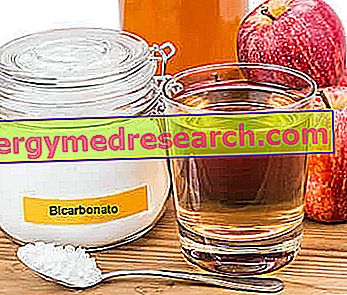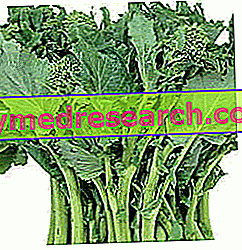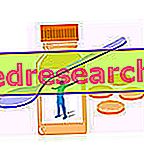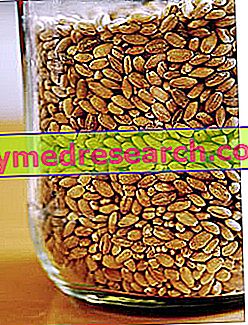Gastroesophageal reflux is a physiological condition affecting the stomach and esophagus.
In a healthy person there are about 50 reflux episodes lasting a few seconds a day.

It is caused by:
- Hiatal hernia.
- Lifestyle and incorrect habits.
It is recognizable by:
- The duration of reflux (3-5 minutes).
- The damage it causes to the esophagus.
GERD lesions are caused by the imbalance between stomach acid and defensive mechanisms of the esophageal mucosa (esophageal sphincter, cleaning of the gastric material, mucosal trophism).
These damages can evolve in critical situations and predispose to very serious pathologies (Barret's esophagus, carcinoma, etc.).
The complications of GERD are almost imperceptible. The first symptoms of esophageal carcinoma usually arise very late.
Early recognition of symptoms of gastroesophageal reflux disease is essential to avoiding a poor prognosis.
What to do
- First of all it is necessary to know how to recognize the typical symptoms:
- Pyrosis (burning) retrosternal.
- Regurgitation of gastric material.
- Epigastric pain.
- It is also very helpful not to exclude GERD in the presence of atypical symptoms; between these:
- Oropharyngeal manifestations (tonsillitis, cough etc).
- Alteration of the upper respiratory tract (polyps, chronic laryngitis, etc.).
- Lung manifestations.
- Recognizing one or more of the typical symptoms, even more if in the presence of recurrent atypical symptoms (for example tonsillitis which does not cure antibiotics), it is necessary to seek medical attention.
- Start the diagnostic path. The general practitioner or gastroenterologist will take care of:
- History.
- Esophagogastroduodenoscopy.
- 24-hour pH-value.
- 24-hour impedance measurement.
- In case of positive diagnosis and under medical prescription, it is necessary:
- Follow specific drug therapy.
- Respect the dedicated food therapy.
- Lose weight in case of overweight.
- Limit smoking and alcohol.
- Eat in an upright position.
- Eat slowly and chew thoroughly.
- After meals:
- Dress in comfortable, non-tight clothing.
- Choose elastic pants or braces rather than belts.
- To rest.
- Stay upright or seated and at a maximum angle of 45 °.
- Chewing gum (stimulating salivation and swallowing promotes cleaning of the esophagus).
- Reduce psychological stress.
NB . A correct lifestyle reduces symptoms in 20-30% of cases.
What NOT to do
- Ignore typical and atypical symptoms.
- Do not seek medical attention or do it for a long time after symptoms start.
- Do not go into the diagnosis with specific instrumental investigations.
- Do not follow or discontinue drug therapy.
- Do not follow or follow the dedicated food therapy with discontinuity.
- Grease or stay overweight.
- To smoke.
- Abusing alcohol.
- Eat quickly chewing little.
- After meals:
- Dress with tight clothes.
- Use constrictive belts.
- Perform substantial physical efforts.
- Lie down.
- Accumulating nervous stress that causes stomach acid and makes GERD worse.
What to eat
To learn more: Diet for Gastroesophageal Reflux Disease
- In case of overweight (especially with android distribution), lose weight by practicing a low-calorie diet with an energy intake of 70% compared to normal.
- Consume reduced meals, with moderate portions. The fractioning of calories could respect a similar criterion: breakfast at 15% of energy, two snacks (snacks) at 10% or four at 5%, lunch at 35% and dinner at 30%.
- Eat away from rest.
- Season a little and only with extra virgin olive oil. 4 teaspoons a day are sufficient between lunch and dinner.
- Of the animal ones, prefer foods that are lean and / or with little connective tissue:
- Among the meats: avian without skin (chicken, turkey, etc.), rabbit, defatted pork or beef, etc.
- Among the fishery products: cod, anchovies, sea bream, sea bass, corvina, ombrina, tuna fillet, prawns etc.
- Among the cheeses: lean ricotta, light spreadable cheese, flakes of milk.
- No more than one whole egg per serving.
- It is possible to consume oilseeds, but only away from the main meals, therefore near the snacks.
- Among the proteic ones, prefer medium cooked foods. The recommended techniques are:
- Boiling in water.
- Vacuum packed.
- Vasocottura.
- Steam powered.
- In a pressure cooker.
- In a hot flame pan.
- Baked.
- Grilled.
- Baked.
- Among the cereals, legumes and derivatives, choose those with medium or low fiber content. Excess causes excessive gastric permanence.
- Fruits and vegetables are tolerated cooked and raw, but the portions should not exceed 150g.
- Insipid foods.
- Fresh foods to be consumed "natural"; the only recommended long-term preservation method is freezing.
- Consume products that do not contain molecules directly involved in the worsening of gastroesophageal reflux (they reduce the tone of the Lower Esophageal Sphincter - SEI).
- If possible, eat foods with an average pH.
- Take the food at medium temperature.
What NOT to Eat
- High-calorie foods that can promote overweight.
- Meals and large portions.
- Quantitatively excessive dinners; they must NEVER be the richest meal of the day.
- Meals close to rest.
- Very seasoned foods.
- Fatty foods, especially of animal origin, or rich in connective tissue:
- Among the meats: offal, fatty cuts of pork, pork rind, ossobuco, sausages, salami, sausages, hamburgers etc.
- Among the fishery products: salmon, eel, tuna belly, octopus, cuttlefish, mussels, clams, snails etc.
- Among the cheeses: gorgonzola, pecorino, mascarpone, fontina, brie etc.
- More than one egg yolk at a time.
- Raw or overcooked protein foods:
- Carpaccio, tartare, sushi etc.
- Stew.
- Ragù and the like.
- Soups.
- Braised.
- Boiled meat.
- The techniques not recommended are:
- Stewing.
- Frying in a pan.
- Long cooking in the oven or on the grill or in boiling water.
- Brazing.
- Cereals, legumes and derivatives with a high fiber content (integral).
- Excessive portions of fruit and vegetables.
- Savoury foods.
- Preserved foods:
- Sottolio.
- In brine.
- Under salt.
- Smoked and dried.
- Spices and aromas, especially those that stimulate acid secretion:
- Chili pepper.
- Pepper.
- Horseradish.
- Ginger.
- Onion, garlic, shallot.
- Products that reduce the tone of SEI:
- Chocolate and cocoa.
- Mint.
- Acidic foods and beverages:
- Vinegar.
- Beverages (for example cola).
- Citrus fruits and juice.
- Tomato and juice.
- Hot or iced foods.
- Milk.
- Coffee and tea.
- Alcohol.
- Broth.
- Carbonated drinks (orange, cola, etc.).
- Snacks and other junk foods.
Natural Cures and Remedies
The only natural remedies for gastroesophageal reflux disease are specific to reduce stomach acid:
- Alkaloids with anticholinergic action that reduce gastric secretion:
- Atropine and scopolamine: contained in the leaves of Atropa belladonna. WARNING! Use is no longer recommended due to potential side effects; moreover, the berries of the same plant are strongly poisonous.
- Mucilaginous drugs that protect the mucous membrane of the stomach and esophagus:
- Altea, alginic acid, mallow, island lichen and aloe gel.
Pharmacological care
- Proton pump inhibitors (PPIs) and H2 receptor antagonists: reduce the acidity of gastric secretions and prevent the gastric contents from corroding the esophageal moss.
- PPI:
- Lansoprazole (eg. Pergastid, Lomevel, Lansox).
- Omeprazole (eg Antra, Nansen).
- Rabeprazole (eg. Pariet).
- H2-receptor antagonists:
- Nizatidina (eg. Nizax, Cronizat, Zanizal).
- Ranitidine (eg Zantac, Ranibloc).
- Esophageal mucosa protectors: protect the wall of the esophagus from acid attack:
- Alginates (eg Gaviscon advance).
- Prokinetic drugs: speed up the emptying of the stomach avoiding that the slowed-down evacuation favors the onset of the disorder:
- Metoclopramide (eg Plasil, Isaprandil).
- Domperidone (eg. Motilium, Peridon).
- Bench antacids:
- Sodium bicarbonate (NaHCO 3 ).
- Calcium carbonate (CaCO 3 ).
Prevention
- The prevention of gastroesophageal reflux is exclusively behavioral. In summary:
- Avoid cigarette smoking and alcohol.
- Avoid clothes that are too tight.
- Maintain a correct posture during and after meals.
- Reduce the volume of meals by preferring small and frequent ones.
- Consume only foods granted by the GERD diet.
- Eat slowly and chew properly.
- Lie down after at least 3 hours.
- Don't overdo physical efforts.
- In case of overweight, lose weight.
Medical Treatments
- The alternative medical treatment to pharmacological therapy is surgery. It is not always or totally decisive. This is an operation that can be performed in laparoscopy (fundoplication), which aims to restore the gastroesophageal sphincter.



